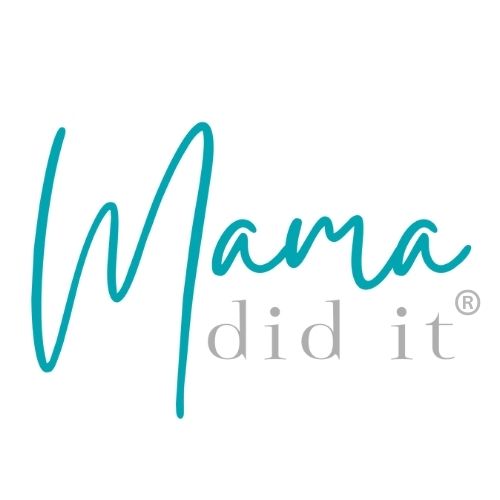Postpartum week three can bring victories as well as challenges. Here’s your nurse’s guide to navigating this part of the fourth trimester.
I hope you are doing well in your postpartum journey! Does it feel like you birthed a baby three weeks ago? New motherhood is such an interesting time. With recovery, healing, and caring for your newborn, there can be many peaks and valleys. Let’s jump into your guide to postpartum week three.
This week, some new moms find they do not like the newborn stage. What they at first thought was transition, turns into them wishing this phase was done. It’s okay if you don’t love this stage. This stage is HARD.
My patient Dina, experienced this. Birth went well for her, and her first couple of postpartum weeks were fairly smooth. By the time she hit her third week, she was dealing heavily with postpartum fatigue. On top of that, her husband, Garrett, expected her to feel normal since she seemed to be flowing through a routine well. The opposite was true. Dina still felt exhausted. She reached out to me and said, “I feel bad for it, but I think I just don’t like the newborn stage.” That’s certainly not unusual. Drenched in caregiving while trying to care for yourself is hard!
For the first three months of your baby’s life, they feel that they are a part of you. They are not able to separate yet that they are different than their mama. No wonder they want to be with you 24/7! Still though, ask people to pitch in and give you a break, even though they may be short this week. Even 30 minutes of solid sleep, or one hour to shower and do your hair, can make you feel back to normal again.
Postpartum Week Three
On postpartum week three, you may be able to find more balance in the routines of your day-to-day life and the care of your new baby. USUALLY, your emotions are settling in, your hormone levels are stabilizing, and you feel you are beginning to get the swing of things. This is good news! If this isn’t your experience as a new mother, that’s okay. Every postpartum recovery timeline is different because every woman is different.
Your goals this week are to drink plenty of water (at least 8 cups if breastfeeding), eat a healthy diet that includes warm meals and snacks, and get as much rest as you can. If you feel ready, you can try a ten-minute walk. See the exercise guidelines below before getting started.
Vaginal Bleeding:
With a vaginal birth, you still will be experiencing some bleeding and vaginal discharge. This is red to pink in color and should be much lighter than the first week. You are past the heavy bleeding part. In fact, if you are having large clots, heavy bleeding, or are soaking sanitary pads in one hour, it’s postpartum hemorrhage. Call your healthcare provider immediately.
You may notice your vaginal bleeding is light or is beginning to shift to yellow or white discharge. This is good and shows signs of healing. You may even skip a day of bleeding. Know that it may be another three weeks before the bleeding is completely gone after a vaginal delivery.
Perineal Care:
Pain should be getting better in your “downstairs” as well. Any episiotomy or tear should be healing well, though you may feel sore in this area for a couple of months. You may also feel more pressure or discomfort if you have been on your feet too much. Listen to your body. It lets you know what it needs.
You may see a stitch or two pass on your pads or in the toilet this week. It will look like small threads. This is normal and is another sign that your perineum is healing. Continue to use a pericare bottle to keep the area clean, and use padsicles, witch hazel pads, or Dermoplast as often as you feel you need it.
Bowel Movement: Pooping and Peeing
By now, you probably have this bowel movement thing down pat. If you are struggling using the bathroom, take stool softeners or magnesium supplements as needed. I also recommend the Squatty Potty to put you in an aligned position as you go.
You have more control over urinary continence this week as the pelvic floor continues to heal. Usually peeing doesn’t burn at this point unless you had a small tear at your urethra during birth. If this is the case, you will still continue healing for a couple of weeks. Squirting the area with warm water while peeing offers sweet relief!
Exercise:
Week three is the first time that I ever recommend beginning exercise for a new mom. Here’s the thing: the six-week, no-exercise rule exists because this is the official time when it is safe for EVERY mom to start physical activity no matter their delivery method or birth story. But many women are ready to move way before this. You know yourself better than anyone. I can’t stress enough that you need to listen to your own postpartum body when it’s ready to move.
If a mom can go on a ten-minute walk without seeing an increase in bleeding or a start to bleeding if it has stopped, and if she can control her breathing with movement, she can start gentle movements and exercises. This can include pelvic floor exercises (kegel exercises) and diaphragmatic breathing. Remember your core muscles are continuing to move into place for several weeks. No reason to rush this.
Diastasis recti will be present for several months. This is normal! It’s the body’s way of adapting to your growing baby. Usually these close on their own, but don’t fret if it takes its time.
Don’t forget, you will not be back to your pre-pregnancy size for a while. Nor are you supposed to be! That’s not the goal right now. The goal is strengthening, while adding movement and flexibility.
And one more thing, I do not recommend sexual activity before the six-week mark. When you birth your placenta, it leaves a dinner-size plate wound in your uterus. This needs time to heal. Your cervix will also continue closing for 4-6 weeks. Having sex too early can introduce infection to the area. Ouch!

Emotions:
Okay, let’s talk for a minute. Postpartum week three is usually the hinge week for emotions. Either the baby blues begin to improve or you may start to notice postpartum depression.
Postpartum anxiety can also begin to rear its head this week. Much of the time this will present as OCD-like, intrusive thoughts. Have you been experiencing random, gruesome “what if” thoughts that seem to come out of nowhere? It’s a form of postpartum anxiety. Part of this is due to the brain plasticity taking place in our minds where neuro pathways are changing and we feel hyper-vigilant over our babies.
Though to an extent this can be a normal part of recovery, if you are feeling overwhelmed, unable to cope, like an elephant is sitting on your chest, or find yourself pacing or picking at your fingers or other things frequently, it’s important to bring in some emotional support. If the thoughts are beginning to make you feel crazy or you seem to obsess over them, it’s time to get some help. Getting into a good therapist or giving your OB a call, is important to do for your mental health.
A healthy mother means healthier motherhood. Please don’t hesitate to reach out for help if you need it. Even if your significant other doesn’t agree you need it. It’s really tough to understand the inner workings of the postpartum mind if you’ve never experienced it. You are worth being taken care of even if you have to do it yourself.
Cesarean Birth:
Three weeks is a good place to be after a cesarean delivery! Usually your vaginal bleeding has stopped, so you are able to go pad free. Once your bleeding is done, you can take a bath or go swimming. If your incision is drainage and scab-free, you are also able to begin using silicone sheets over your c-section scar. This can help minimize scarring and promote healing. Now is a great time to baby your incision!
It’s still important not to lift over ten pounds. Though much healing has taken place, your muscles and fascia are still recovering from surgery. If you feel ready for exercise, start with a ten-minute walk. You should feel good afterward and your bleeding shouldn’t begin again after your walk is through. If this isn’t the case, wait another week before trying again.
Pain:
You shouldn’t need any form of narcotic pain medication at three weeks postpartum. If you are experiencing severe pain, this isn’t normal, and you need to call your healthcare provider.
You may still have discomfort in your bottom and vaginal area. Your pelvic floor muscles are still healing, and your body is still going through a healing process. These body changes may still feel uncomfortable at times. Using hot packs or ice packs as needed and taking over-the-counter medication should help you. It’s a good idea to rest if you begin feeling discomfort.
Breastfeeding
Your milk supply is still regulating this week. That means you may experience breast engorgement from time to time or a clogged milk duct. Your body is still learning what your baby needs. Using warm compresses before nursing and ice packs or cold compresses after nursing can be helpful. It isn’t too late to call a lactation consultant if you are having issues. Most of the time, it’s a simple solution to our breastfeeding issues when we have an expert helping us. Sore breasts are still normal at this point, though you may notice you are feeling more settled in with nursing your baby. breast milk,
It’s normal for a new mom to wonder if her baby is getting enough breast milk. Hopefully, you have a pediatrician or a lactation consultant following your baby’s weight gain during this time. By now your baby should be back up to their birth weight as well as gaining a little bit each day. You can trust a healthy, full-term baby’s feeding cues!
Can you hear them swallowing at the breast? Do your breasts feel full when starting a feeding and soft after? Does your baby seem calm after nursing? Are they having regular wet and dirty diapers? If you answered yes to these questions, you are doing well and on the right track. If you are ever in doubt, check in with your pediatrician.
Follow-Up Visits:
Usually, you don’t have any follow-up visits this week unless it’s with a lactation consultant. Your postpartum check-up is at the six-week mark. I also recommend making an appointment with a pelvic floor physical therapist between six and eight weeks postpartum. They will help your pelvic floor recover and regain full function after birth.
Postpartum Week Three
I hope you are able to enjoy your growing baby this week! May your week be filled with lots of little smiles. If you are struggling and it feels like more than you can handle, go ahead and reach out to your doctor or midwife for help. They will know what to do so you can better enjoy this fourth trimester. Best wishes to you, Mama!
You may also like Postpartum Week Four.
